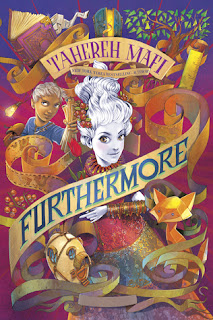King Lear Review
King Lear by William Shakespeare (288 pages)
My Rating: 5 Stars
Date Finished: 7 February 2015
Synopsis:
Criticism provides thirteen major critical interpretations and three provocative adaptations and responses toKing Lear. Critical interpretation is provided by Samuel Johnson, Charles Lamb, Peter Brook, Michael Warren, Lynda E. Boose, Janet Adelman, and R. A. Foakes, among others. The adaptations and responses are by Nahum Tate, John Keats, and Edward Bond. A Selected Bibliography is also included.
My Review:
I really enjoyed this play. It is definitely one that I would recommend to anyone who likes Shakespearean tragedies!! The characters were very interestingly developed throughout the play.
I really enjoyed seeing the development of the relationship between King Lear and his daughters. Also, seeing the characters fall deeper and deeper into their own insanity was very interesting as well.
Act three of the play shows the audience even more of Lear’s descent into madness. His being stuck out in a storm leads him to lose all sense of sanity. His anger towards his daughters grows as the storm starts at the end of the second act; the storm is shown as a parallel to his madness. The audience really sees the degradation of Lear’s state when he is outside of his daughter’s castle in the storm. The storm and tempest match his madness and ravings as he curses the storm. As the storm’s ferocity grows, so does the king’s madness. Lear even goes as far as cursing the storm itself in Act 3 Scene 2 stating, “Blow, wind, and crack your cheeks!” (Line 1). He is goading the storm into fighting him, a mere mortal man. This testing of the elements makes his actions seem insane to the audiences. Lear is attempting to show the storm his power in this instant as he is commanding it in what it should do. However, this commanding and powerful attitude changes very quickly into one of a weak man begging to the gods of the storm and telling them that he is their slave. He begins to cry out to the storm yelling, “Here I stand your slave,/A poor, infirm, weak, and despised old man” (3.2 Lines 19-20). He is giving himself over to the power of the storm, just as he is giving himself over to his insanity. Lear begins to realize his insanity soon after this and tells Fool, “My wits begin to turn” (3.2 Line 67). He is recognizing that he is hitting rock bottom at this point, but still does nothing to stop it. These lines, save the last one, are all yelled out into the howling storm. Lear at this point is not showing any of his previously shown power, and is seemingly giving up with the last line. He is a much changed man from the beginning of the play.




Comments
Post a Comment